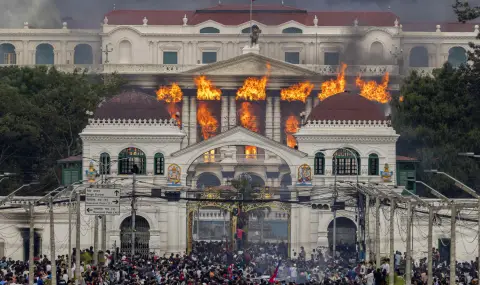
Nepal’s turbulent governance journey is a cautionary tale. Nigeria today, with its multiple crises, cannot afford to miss the signals. The question, therefore, is not just whether Nepal is loading in Nigeria—but whether Nigeria is ready to act in time.
Nepal’s Governance Quagmire: A Story of Missed Signals
Nepal’s recent history shows how fragile states can descend into cycles of instability when leaders ignore warning signs. Despite its natural wealth and rich culture, Nepal has faced:
- Chronic economic hardship due to overdependence on remittances and weak domestic industries.
- Youth unemployment, driving mass emigration and brain drain.
- Persistent insecurity, from insurgency to widespread lawlessness.
- Elite impunity, where political leaders lived above the law.
- Corruption, which diverted resources from critical development needs.
- Insensitive leadership, detached from the struggles of ordinary citizens.
Street protests, collapsing services, and rising youth anger were all clear signals. Yet leaders either dismissed them or misread them. By the time reforms were attempted, public trust had eroded, and instability had already become the norm.
Nigeria’s Reflection in the Mirror
Nigeria’s present challenges mirror Nepal’s governance failures with eerie similarity:
- Economic Hardship – Spiraling inflation and a weakening naira have driven millions into poverty.
- Unemployment and Underemployment – Youth, the nation’s majority, are largely excluded from meaningful economic participation.
- Insecurity – Insurgency, banditry, and kidnappings spread across the country, overwhelming weak state responses.
- Political Impunity and Extravagance – Nigerian politicians, like their Nepali counterparts, flaunt luxury while citizens endure broken public systems.
- Corruption – Development funds leak into private pockets; anti-corruption campaigns rarely bite.
- Leadership Insensitivity – Public comments and policies often reveal a widening gulf between leaders and citizens.
These are not abstract issues; they are live signals flashing red.
Opportunities Nepal Offers Nigerian Leaders
Nepal is more than a cautionary tale—it is a mirror and a roadmap. Nigerian leaders can draw valuable insights by studying Nepal’s mistakes:
- Early Response is Cheaper than Late Reform
Nepal delayed tackling corruption and inequality until public anger boiled over. Nigeria still has the opportunity to act before disillusionment becomes irreversible. - Youth Inclusion is National Insurance
Nepal’s neglect of its youthful population drove talent abroad and fueled instability at home. Nigeria’s youth, innovative and energetic, can either power progress or unrest. - Trust is the Most Valuable Currency
Once Nepali citizens lost faith in leaders, governance reforms struggled to gain legitimacy. Nigerian leaders must act transparently to build and preserve trust. - Institutions Matter More Than Strongmen
Nepal’s reliance on personalities rather than strong institutions left the state fragile. Nigeria can choose to strengthen its democratic institutions beyond individual leaders.
The Danger of Failed Signal Detection
Nepal’s lessons show that when leaders ignore early warning signs—mass protests, deepening inequality, growing youth frustration—small sparks can ignite political and social explosions. Nigeria today is brimming with such signals:
- Increasing migration of skilled workers (“Japa” phenomenon).
- Rising disaffection expressed through social media activism and street protests.
- Worsening insecurity spreading across multiple regions.
- Expanding poverty that undermines national stability.
Governance that fails to read these signs risks walking blindfolded into crisis.
Lessons for Nigeria
- Governance without empathy collapses: Citizens cannot be ignored indefinitely.
- Signals are not noise: Rising protests, brain drain, and disaffection are early warnings, not background chatter.
- Corruption breeds insecurity: When resources meant for security and development are siphoned off, the state becomes hollow.
- Elite detachment is dangerous: A government that appears insulated from citizens’ struggles fuels resentment.
Recommended Actions for Nigeria
To avoid Nepal’s fate, Nigeria must act decisively in three areas:
- Economic Reform with Human Focus
- Tame inflation by stabilizing currency policy.
- Prioritize local production and reduce overdependence on imports.
- Expand social safety nets to cushion citizens during tough reforms.
- Youth Empowerment and Inclusion
- Invest in vocational training, technology hubs, and small business financing.
- Institutionalize youth participation in governance beyond token appointments.
- Harness diaspora remittances not as an escape valve but as a channel for structured investment.
- Strengthen Institutions and Accountability
- Empower anti-corruption agencies to act without political interference.
- Reduce political perks and redirect savings to public services.
- Decentralize governance to bring decision-making closer to the people.
- Security Reorientation
- Invest in intelligence-led policing and early detection systems.
- Address root causes of insecurity—poverty, marginalization, and unemployment.
- Foster community-based security partnerships for local resilience.
- Cultivate Empathetic Leadership
- Leaders must communicate honestly and regularly with citizens.
- Policy should reflect not only economic metrics but also human impact.
- Adopt humility in governance: fewer convoys, fewer extravagances, more visible sacrifice.
Conclusion: Is Nepal Loading in Nigeria?
Nepal’s governance tragedy did not arrive overnight—it was the slow consequence of ignored signals, corruption, and elite detachment. Nigeria today stands at a decisive crossroad. Will leaders seize the opportunity to learn, listen, and act? Or will they repeat the mistakes of Nepal until the social contract collapses?
The signals are flashing. The path is clear. The choice is urgent.Is Nepal loading in Nigeria?
NZE DAVID UGWU IS THE MANAGING CONSULTANT, KNOWLEDGE RESEARCH CONSULT

